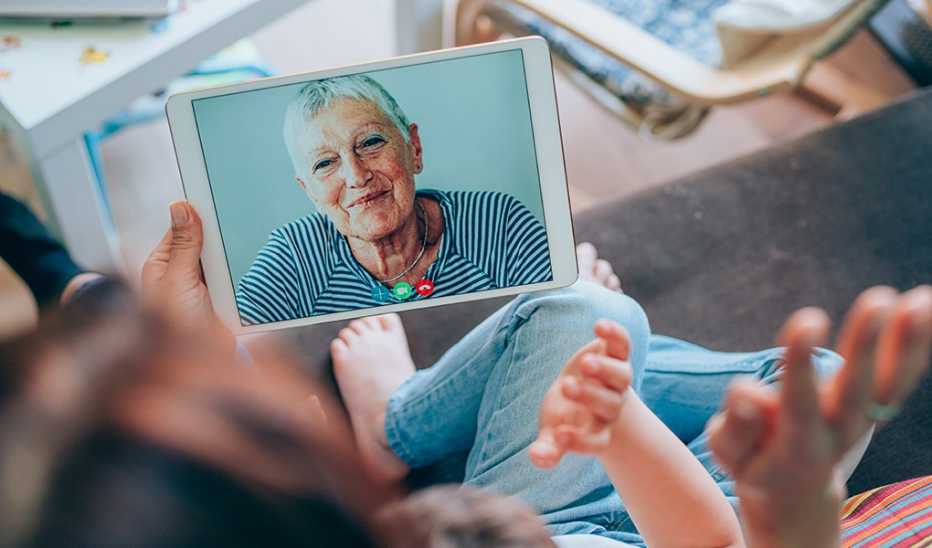Challenges


Quick Win
Engaging with other people digitally can support your brain health; these strategies will help you make the most of your next virtual meetup.
Try This Today
- Connect authentically. Find ways to bring the essence of your in-person relationship to your virtual meetings. If you like to watch sports together, for example, schedule your next chat during a game. Share stories. Laugh together. Even if you can’t be in the same room, you can make it feel like old times.
- Look each other in the eye. During video calls, take time to make eye contact and notice the other person’s facial expressions. When you try to read someone else’s feelings, you’re more likely to be empathetic, which may help you feel closer to your companion.
- Schedule a walk-and-talk. You don’t have to be in front of a computer to connect, and walking has numerous health benefits (weather and mobility permitting). Schedule a walk-and-talk with a friend and use headphones to catch up while you get your blood pumping. It doesn’t matter if you are both huffing and puffing a bit on the phone, because you’re doing it together.
Why
“Maintaining a variety of social connections and meaningful interactions with people may be a protective factor against cognitive decline as we age,” according to AARP’s Global Council on Brain Health 2017 report “The Brain and Social Connectedness.” This includes connecting with people digitally, which the report says can help seniors “both maintain their relationships with family and friends and expand their existing social world.” In a randomized controlled trial including close to 150 socially isolated people 75 and older, half engaged in a 30-minute video chat 4 days a week for 6 months and then twice a week for another 6 months. The other half did not. Both this group and those who were controls got a weekly phone call to check in on health and social activities. The experimental group had higher cognitive test scores and language-based executive function than the control group, as reported in 2023 in The Gerontologist.











More From Staying Sharp
Challenge Your Brain With a Fun Improv Game
For a mental workout — and some guaranteed laughs
Laughter Can Give the Brain a Healthy Boost
A good guffaw releases feel-good chemicals and reduces stress
Your Brain May Be the Key to Exercising
Explore the link between physical activity and cognitive function in older adults